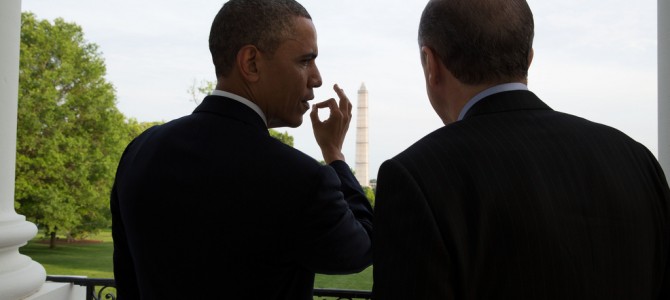Once again, President Obama has announced that he’s going to bypass Congress in order to impose his own agenda through executive orders, this time on immigration.
Does this guy even understand how representative government works?
Here’s how it works: the representatives govern. In other words, Congress makes the laws. But Obama seems to think that when push comes to shove, the president is the only representative the people need. Thus, he declared that “America cannot wait” for Congress, as if he speaks for America, rather than the people actually elected by the people to represent them in something called—you guessed it—the House of Representatives.
Oh, but he says he was forced into it. “I don’t prefer taking administrative action. I’ve made that clear multiple times…. I only take executive action when we have a serious problem, a serious issue, and Congress chooses to do nothing.” No, when Congress chooses to do nothing, the president’s job is also to do nothing. It’s not a matter of his preference, because he has no law authorizing him to act.
According to legend, President Obama once taught constitutional law. But the part he taught was civil rights law, and it often seems that is the only part of the Constitution he has ever bothered to study. Clearly, he missed the part in Article I where it says that “All legislative powers…shall be vested in a Congress of the United States,” including the creation of “a uniform Rule of Naturalization” for immigrants.
The essence of the president’s role in our system is not: I have to adhere to the laws passed by Congress, but only if they do what I want. His role is: I have to adhere to the laws passed by Congress.
To the nitpickers: yes, there are emergency situations in which the president might act without proper procedures, such as a Thomas Jefferson’s negotiation of the Louisiana Purchase, where he leapt on a diplomatic opportunity before Congress could respond. But Jefferson believed that he should offer up his action to Congress for approval afterward, on penalty of impeachment if they thought he had abused his power. (The purchase was, of course, met with widespread acclaim.)
In Obama’s case, taking action on immigration after five years in which he has fitfully pursued the issue with Congress does not qualify as an emergency.
President Obama has been a little vague on what exactly he’s planning to do. He merely said that he has asked his advisors to present him with options later this year. That gives this the feel of a policy that is intended, not to achieve any particular result, but to appease a constituency and buy a little silence from critics, in this case, from advocates of liberalized immigration who are frustrated at how little Obama has done for their cause.
They shouldn’t be appeased, because Obama is doing something for his cause: he’s setting it back by a decade. As John Boehner points out, a huge part of the reason it’s so hard to get an immigration deal in Congress is that Republicans have no faith that Obama will stick to it. They think he will simply pocket any concessions that they make to him, while refusing to follow through on any concessions he promises to them. The president has just confirmed this fear.
America’s immigration policy certainly needs fixing. The difference in wealth and security between the United States and its nearest neighbors to the South creates huge incentives for immigration, yet restrictive laws and inadequate quotas make it impossible for most of these people to immigrate legally. But poor enforcement means that most people who come illegally won’t be sent back. So illegal immigration is the existing system. It’s the result our system is designed to produce.
Far from fixing this system, everything Obama has done has made it worse, and what he is preparing to do is likely to make it even worse still.
His last big unilateral executive action was a program that granted legal status to illegal immigrants who came to America as children. The result: a peculiar and disturbing wave of unaccompanied children coming over the border.
So his latest solution, the only thing that has specifically been announced from his new wave of executive actions? To suspending deportations and basically all enforcement of immigration laws within the center of the country—so he can send more people and resrouces to increase enforcement at the border.
All presidents have made unsatisfying compromises between opposing principles. But President Obama distinguishes himself in his tendency to choose the cruelest compromises, the ones most likely to result in a horrific human cost and dissolve into chaos.
In this case, it sounds like the premise of some dystopian science fiction story. Call it the Running Man immigration policy: you’re trying to get from dusty, hopeless slums into a gated community of wealth and opportunity, and the way the system is set up, you have get past a terrifying gauntlet of border guards, and then you’re home free. For a lot of people on both sides—and for the people who live on a border that has been turned into a war zone—this story is not going to end nicely.
But what really fits the dystopian mold is the way this system is being created: not as a deliberate policy chosen by the people, but by the edict of a president who regards the country’s legislature as an annoying and dispensable encumbrance.
Follow Robert on Twitter.








